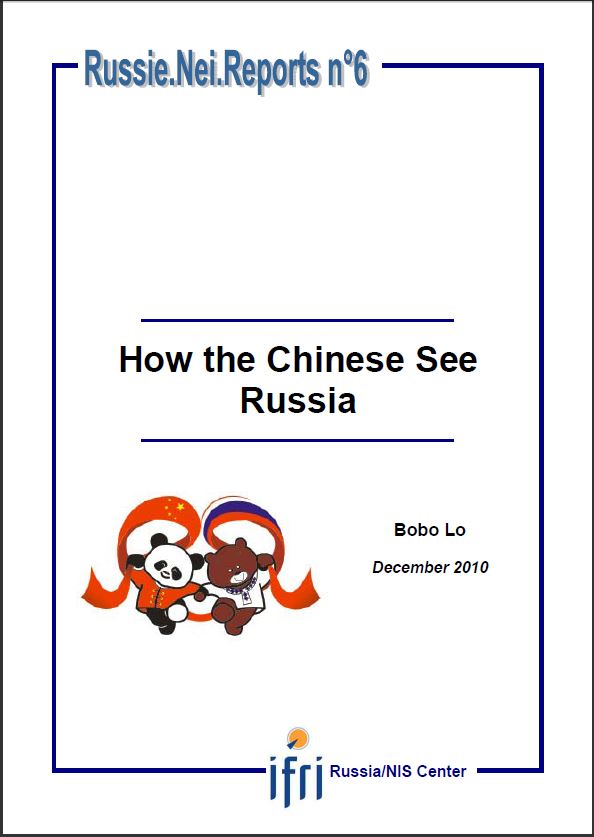How the Chinese See Russia

This essay examines Chinese attitudes toward Russia as a great power, neighbor, partner and competitor.
China is in the midst of one of the most remarkable transformations in history. During this dramatic period, the relationship with Russia has remained something of a sideshow. If the recent narrative of bilateral engagement has been largely positive, then Chinese policy-makers and thinkers nevertheless look to the West for their points of reference and sources of modernization. Russia, which once offered an alternative model, now stands as an object lesson in what not to do. To many Chinese, particularly among the younger generation, it has simply become an irrelevance. But for all its well-documented problems, Russia remains a major international actor with the capacity to affect core Chinese interests. The leadership in Beijing understands that national modernization, the building of a stable neighborhood and China's transformation into a global actor will depend, in some measure at least, on a functional relationship with its largest neighbor. The “Russia factor” in its world-view may have declined, but it has certainly not disappeared.

Available in:
Regions and themes
ISBN / ISSN
Share
Download the full analysis
This page contains only a summary of our work. If you would like to have access to all the information from our research on the subject, you can download the full version in PDF format.
How the Chinese See Russia
Related centers and programs
Discover our other research centers and programsFind out more
Discover all our analysesRussia's Asia Strategy: Bolstering the Eagle's Eastern Wing
Among Russia’s strategic priorities, Asia traditionally played a secondary role compared to the West. In the mid-1990s, then Foreign Minister Yevgeny Primakov initiated a rapprochement with China and India. Then, in 2014, deteriorating relations between Russia and the West prompted Moscow to begin its “great pivot to the East”.
Kazakhstan After the Double Shock of 2022: Political, Economic and Military Consequences
The year 2022 represented a dual shock for Kazakhstan. In January, the country faced its most severe political crisis since independence, followed in February by Russia’s full-scale invasion of Ukraine, which cast uncertainty over the borders of post-Soviet states. These consecutive crises profoundly shaped Kazakhstan’s domestic and foreign policy.

How the Russian Army Changed its Concept of War, 1993-2022
The traditional and high-intensity war that has occurred in Ukraine since Russia decided to invade raises a key issue: did post-soviet Russian strategic thought really prepare Russia for waging this war?
Russia's Nuclear Deterrence Put to the Test by the War in Ukraine
From the outset of its “special military operation” (SVO) against Ukraine on February 24, 2022, Russia, which possesses one of the world’s largest nuclear arsenals, has adopted aggressive deterrence measures and a resolutely menacing rhetorical stance.












